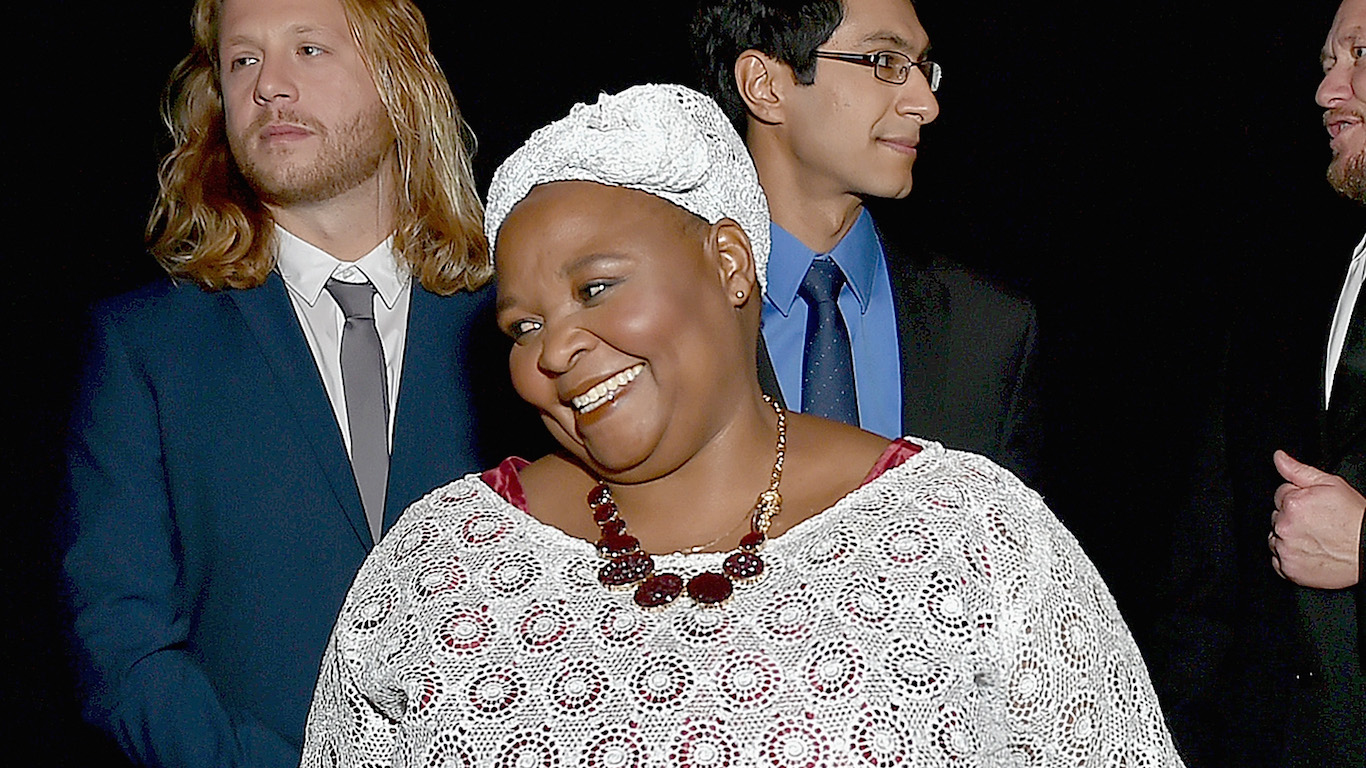
Working to help others and improve the community is, for many, part of what it means to be human. An army of workers and volunteers work every day to create a more humane world, fighting injustice and tackling public health crises.
Still, both in the United States and worldwide, there is no shortage of humanitarian and social causes desperately in need of individuals willing fully devote themselves to the service of others.
24/7 Wall St. identified 25 humanitarians who not only have dedicated their lives to helping others, but are often also innovators in the field, creating a blueprint for success that others have followed. Some are world renowned and historically relevant, while others are little known outside of the communities they serve. Their ages range from 21 (Malala Yousafzai) to 93 (former U.S. President Jimmy Carter).
The accomplishments of these extraordinary people include creating vaccines to tackle one of the leading causes of death for children under five and rehabilitating thousands of rape and prostitution survivors.
One of these heroes distinguishes himself through his novel approach to reducing violence in at-risk communities, while another works to remind the world that peonage and slavery haven’t yet fallen into the dustbin of history. There’s the “Saint of Sudan,” the only full-time doctor serving hundreds of thousands of war-ravaged civilians, and a labor rights activist who has had a day named in her honor by a U.S. state governor, a rare occurrence for someone who is still alive.
This list is by no means complete, but it offers a diverse snapshot of some of today’s hero humanitarians.
In order to identify the humanitarians for this list, 24/7 Wall St. reviewed recent recipients of various humanitarian awards and other distinctions, including the Aurora Prize, the Nobel Peace Prize, and the Robert F. Kennedy Human Rights Award.
To qualify for this list, the humanitarian must have been alive as of August 13, 2018. Philanthropists, state officials and wealthy individuals who have given away most of their wealth for humanitarian causes were excluded in order to focus on individuals who distinguished themselves in the field rather than in the boardroom.
This list is not ranked, but listed in alphabetical order.
Click here to see the hero humanitarians you should know about now.

1. José Andrés
> Cause involved with: hunger eradication
This Spanish chef captured attention in the wake of Hurricane Maria, which devastated Puerto Rico in September 2017. Through his nonprofit group, World Central Kitchen, and with the help of a small army of volunteers, José Andrés managed to quickly deliver millions of hot meals to storm-ravaged residents who would have otherwise survived on MREs and snacks. World Central Kitchen has fed other hungry people in crises, from exhausted California firefighters to Guatemala volcano survivors.
[in-text-ad]
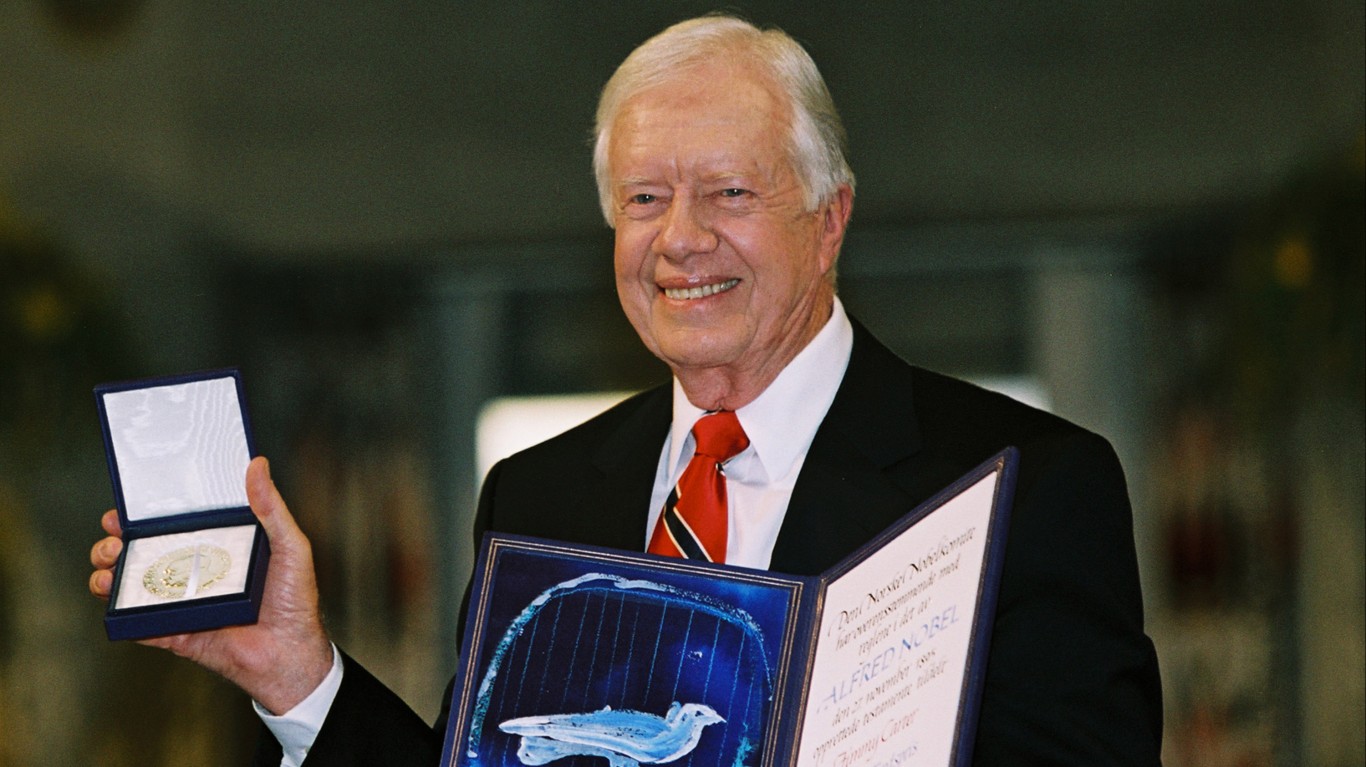
2. Jimmy Carter
> Cause involved with: numerous
The 39th president of the United States may have been soundly defeated by Ronald Reagan, but his legacy endures at least as much for what he has done since leaving office. Like the president he admired most, Harry Truman, Jimmy Carter broke from tradition by not trying to profit from his presidency after leaving office. In 1982 he founded the nonprofit Carter Center, aimed at eradicating infectious diseases in poor countries, election monitoring and conflict mediation. Carter and his wife Rosalyn have long been advocates for Habitat for Humanity, which builds houses for homeless American families.
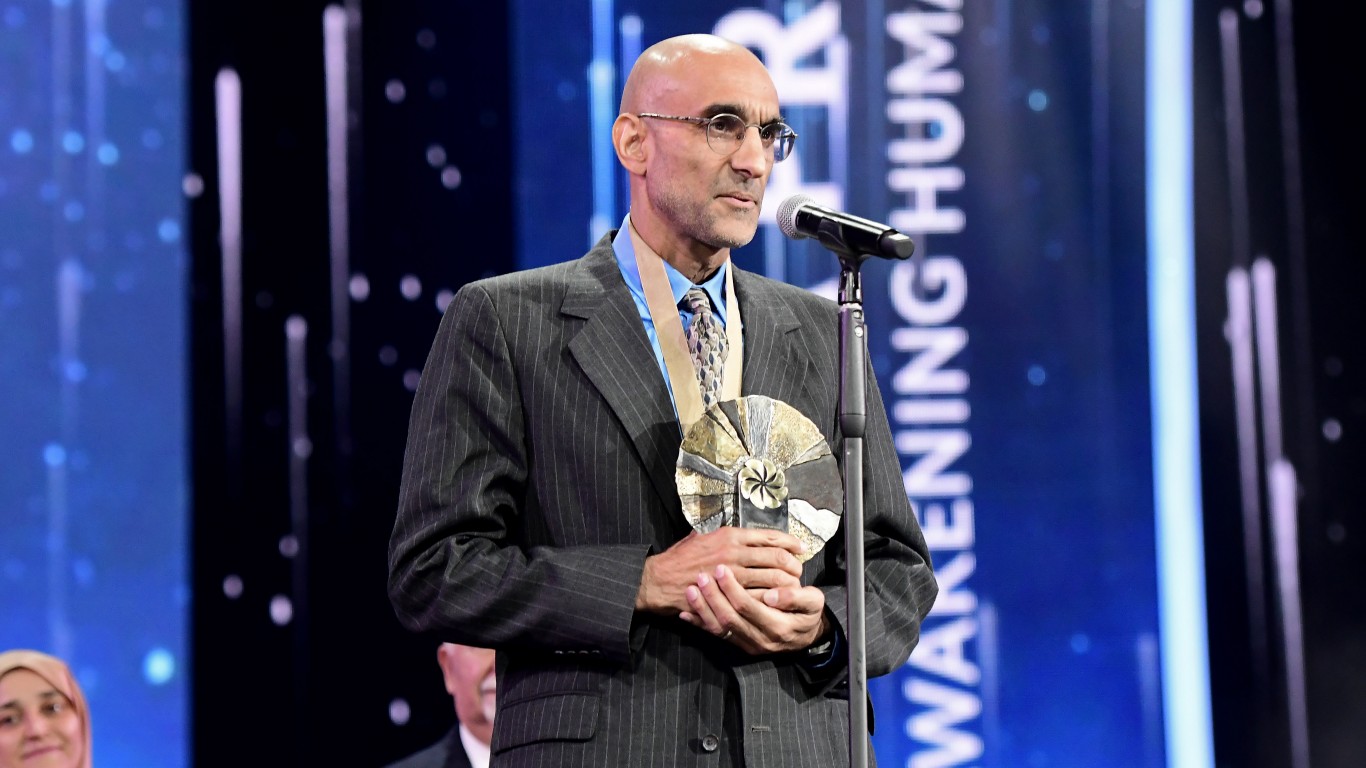
3. Dr. Tom Catena
> Cause involved with: medical treatment
As the only permanent medical doctor serving a remote and conflict-ravaged area of Sudan the size of Massachusetts and New Hampshire combined and home to 750,000 people, this Catholic missionary knows first-hand how foreign aid can save lives. People often walk days to reach Dr. Tom Catena’s the Mother of Mercy Hospital, which treats hundreds of patients a day despite frequent power and water outages. The “Saint of Sudan” has spent almost all of his time since 2008 treating the people of this region.
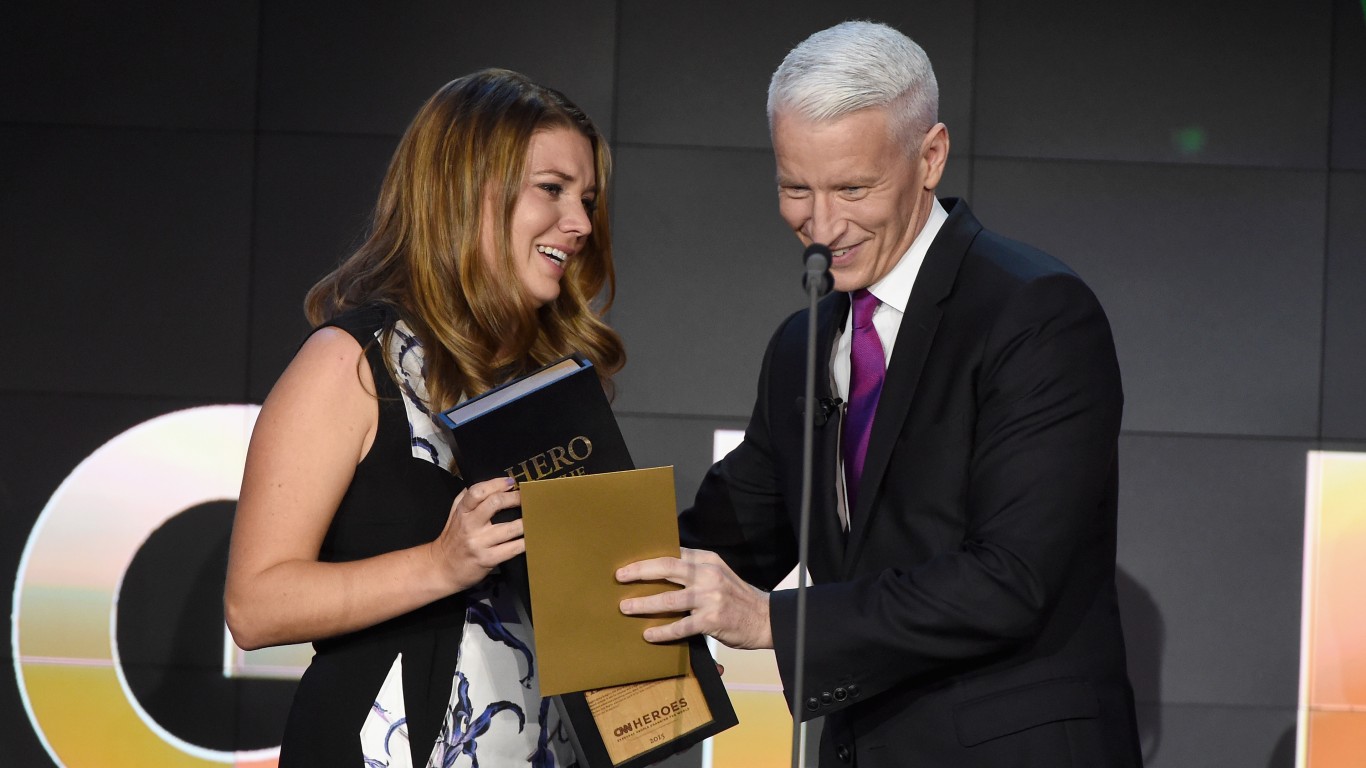
4. Maggie Doyne
> Cause involved with: children’s rights
Fresh out of high school, Maggie Doyne took a gap year in 2006 to travel the world and explore child-centric humanitarian projects. She made her way to India and Nepal, and what she saw inspired her to stay and work to improve the lives of women and children. She co-founded BlinkNow, a nonprofit that educates and provides a safe environment for children who may otherwise be living in the streets or performing child labor. The foundation supports the Kopila Valley Children’s Home, a communal living space for about 50 children, a school for about 400 children and a health clinic and women’s center. Most of the staff are Nepalese.
[in-text-ad-2]
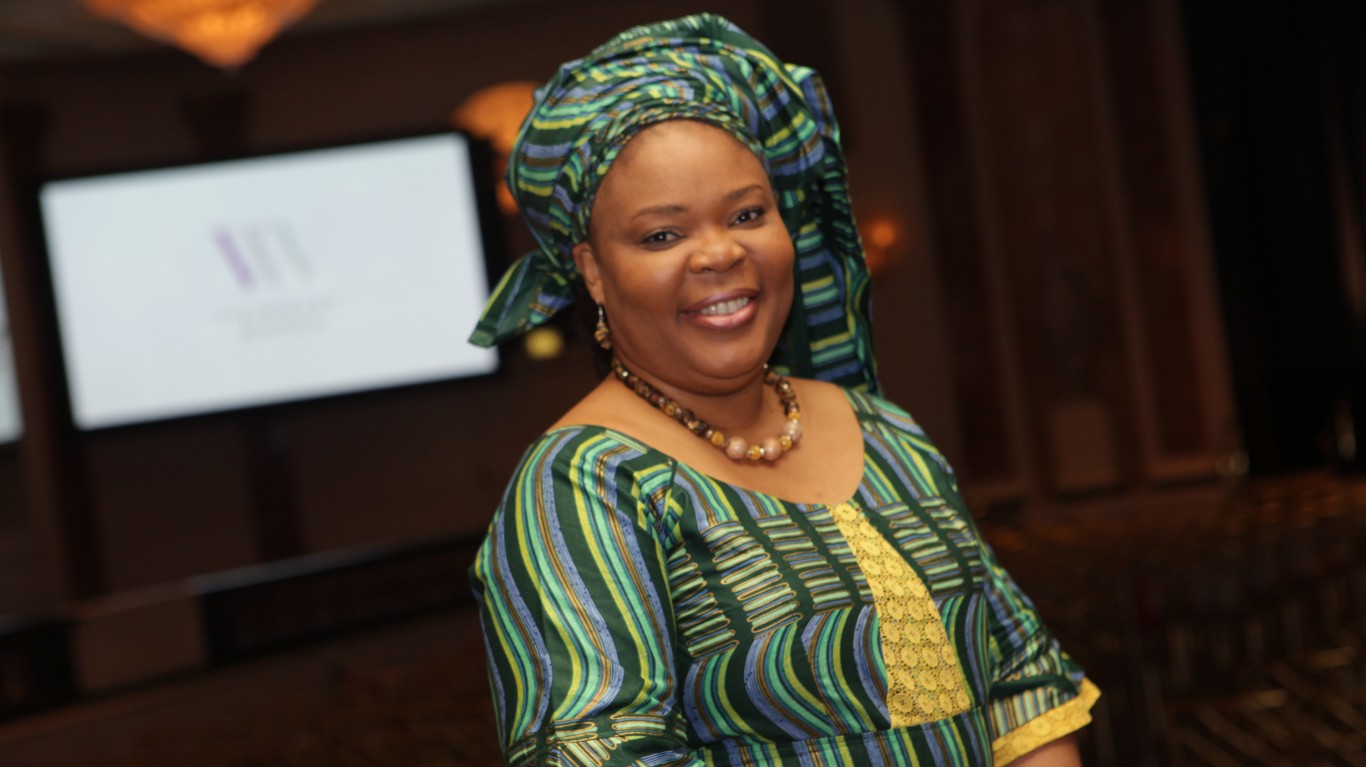
5. Leymah Gbowee
> Cause involved with: peace building
Shortly after graduating from high school in 1989, Leymah Gbowee’s home country of Liberia fell into civil war, ending her plans to continue her education to become a doctor. This 2011 Nobel Peace Prize laureate is best known for uniting Muslim and Christian women and starting a movement that was instrumental in ending a second civil war that erupted in 1999. It also pushed President Charles Taylor into exile — he was later convicted of war crimes — and helped elect the continent”s first female head of state, Ellen Johnson Sirleaf, in 2006.
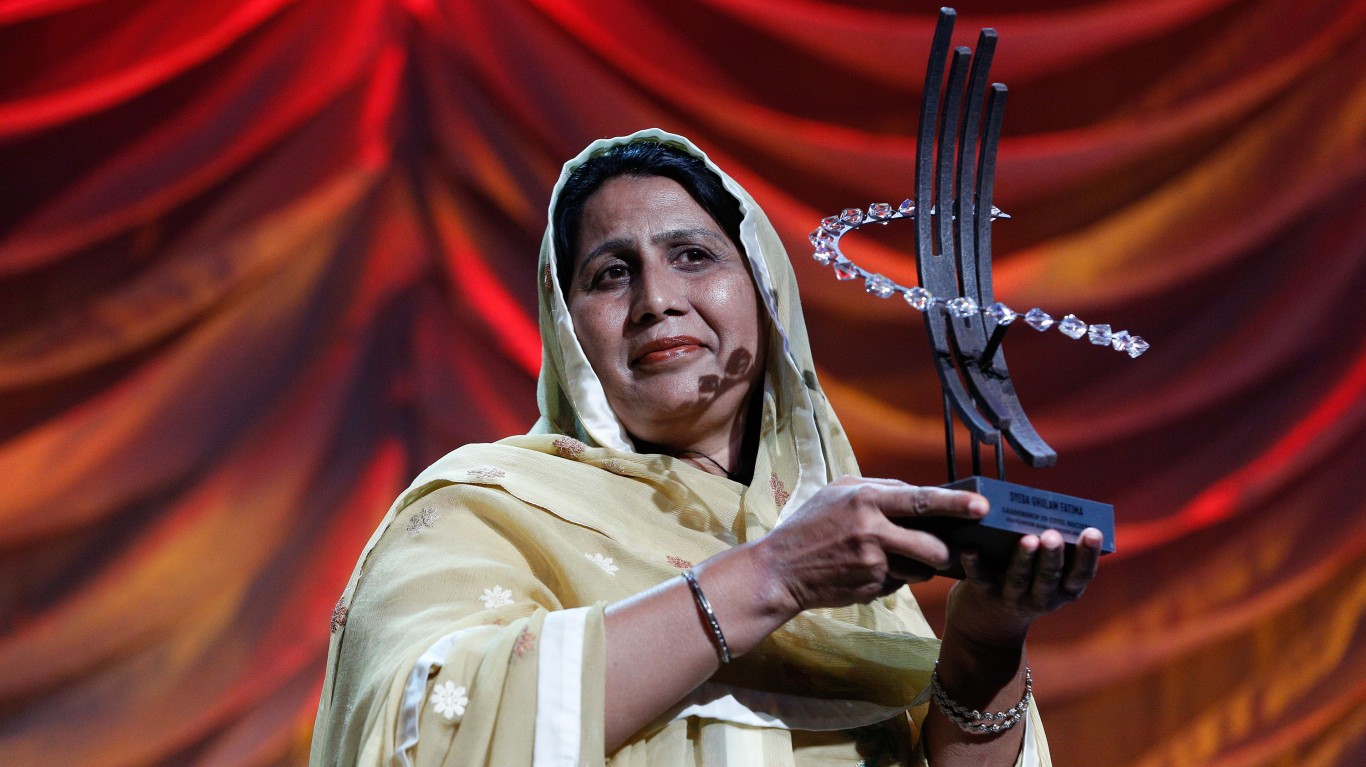
6. Syeda Ghulam Fatima
> Cause involved with: labor rights
It’s difficult for many people in the developed world to conceive that slavery or bonded labor still thrive in many pockets of the world. But it does, and one place where it thrives is South Asian brick-making kilns. Syeda Ghulam Fatima has devoted much of her adult life to raising awareness of the problem, and providing services for victims, in her home country of Pakistan. Through her work as head of the Bonded Labour Liberation Front Pakistan, and despite threats and acts of violence from brick kiln owners, Ghulam Fatima has raised awareness of the problem, where desperately poor rural laborers are forced into debt traps that can last a lifetime. Often the debts are inherited by the workers’ children, who must then also work without pay until the debts are cleared, if ever.
[in-text-ad]
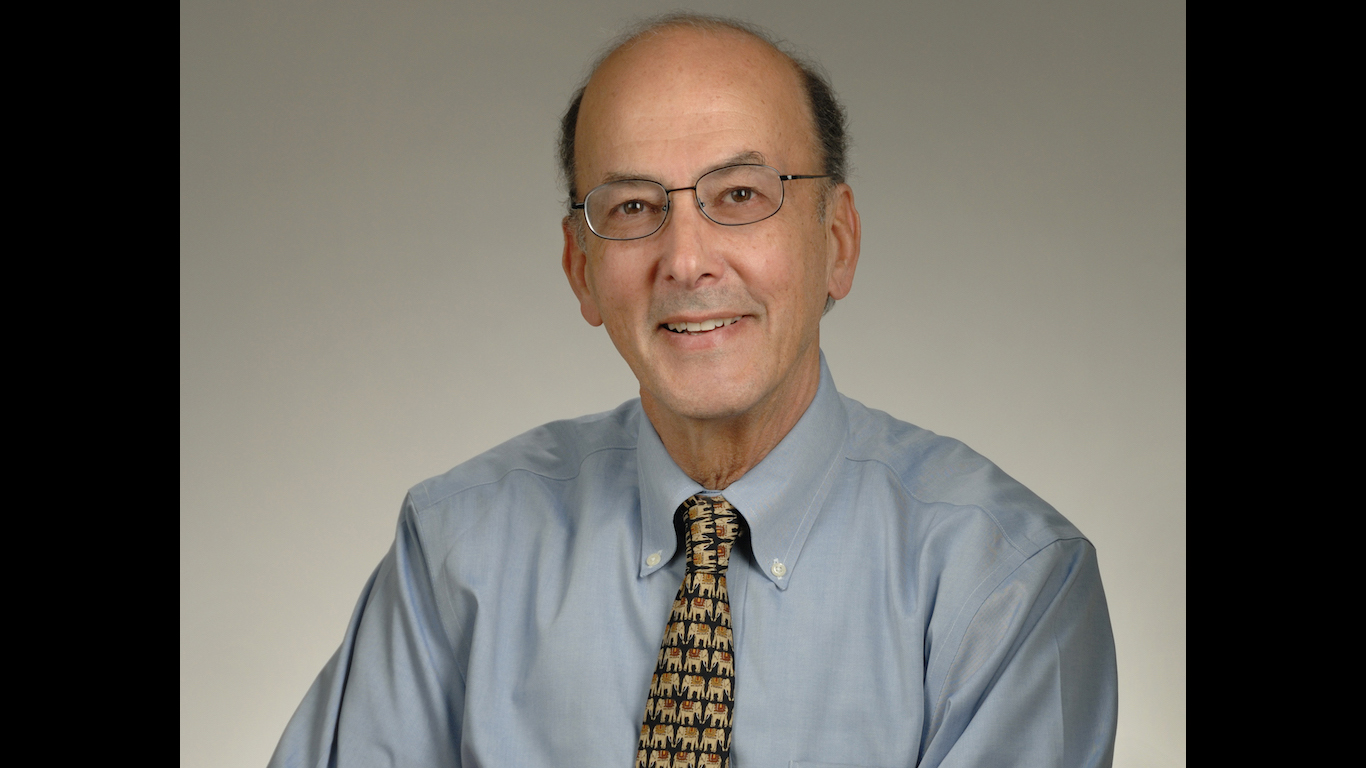
7. Dr. Roger Glass
> Cause involved with: vaccines
When Americans hear about rotaviruses, it’s usually because of a foodborne illness outbreak from which people typically (not always) survive. But rotaviruses (as well as noroviruses) are a leading cause of diarrhea, which kills more infants worldwide than malaria, measles and AIDS combined. Dr. Glass of the Fogarty International Center in Bethesda, Maryland, has spent the last three decades developing vaccines to combat this second-leading cause of death of children under the age of five. He has developed several vaccines used in national immunization programs across much of the developing world.
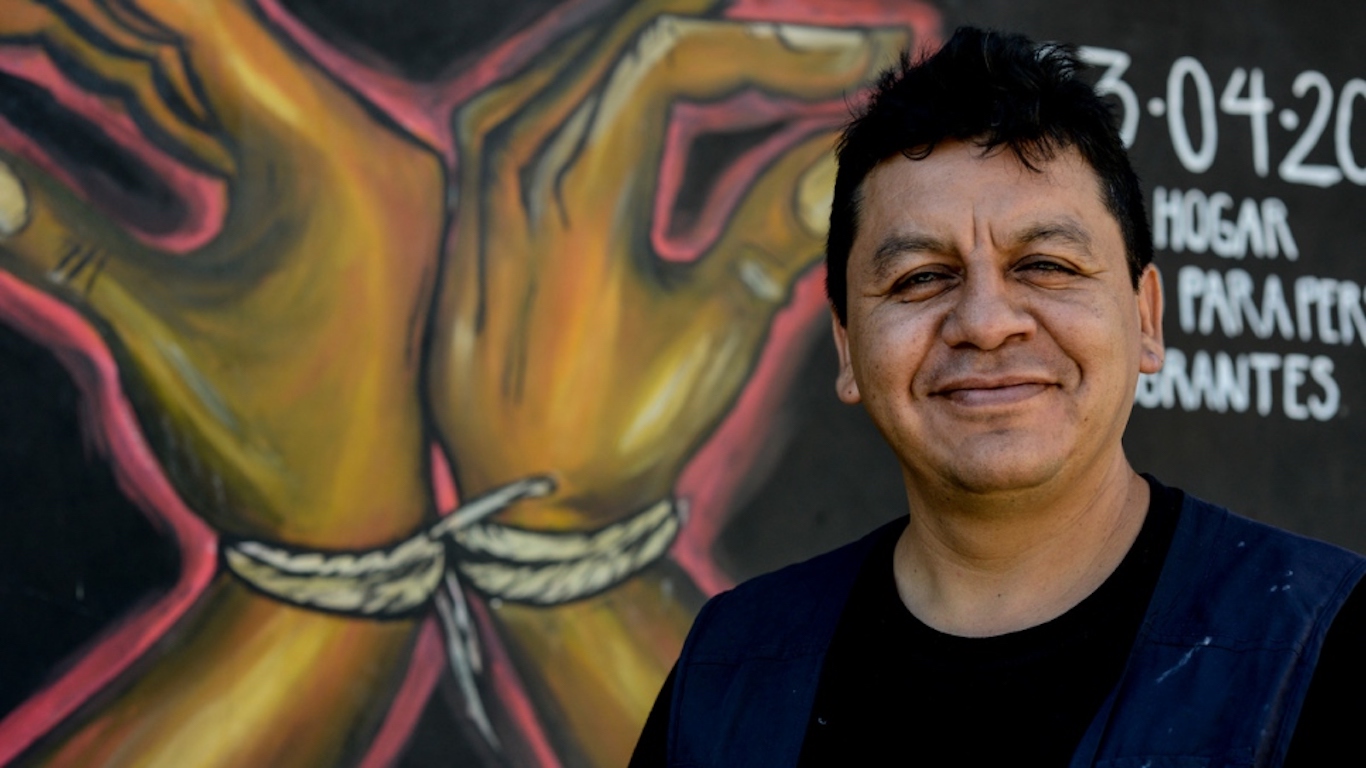
8. Héctor Tomás González Castillo
> Cause involved with: sanctuary
Franciscan friar Tomás González Castillo provides sanctuary and hot meals to northbound Central American migrants. In 2011 González founded La 72 Home and Refuge in Tenosique, Mexico, near the border with Guatemala. Named after the 72 migrants who were massacred by drug gang members near the U.S. border in 2010, La 72 provides cots, meals and temporary stay to migrants traveling northward. The shelter also is one of the first in the country to provide shelter to ostracized members of Mexico’s LGBTQ community. González has faced death threats for his condemnation of the country’s violent drugs gangs.
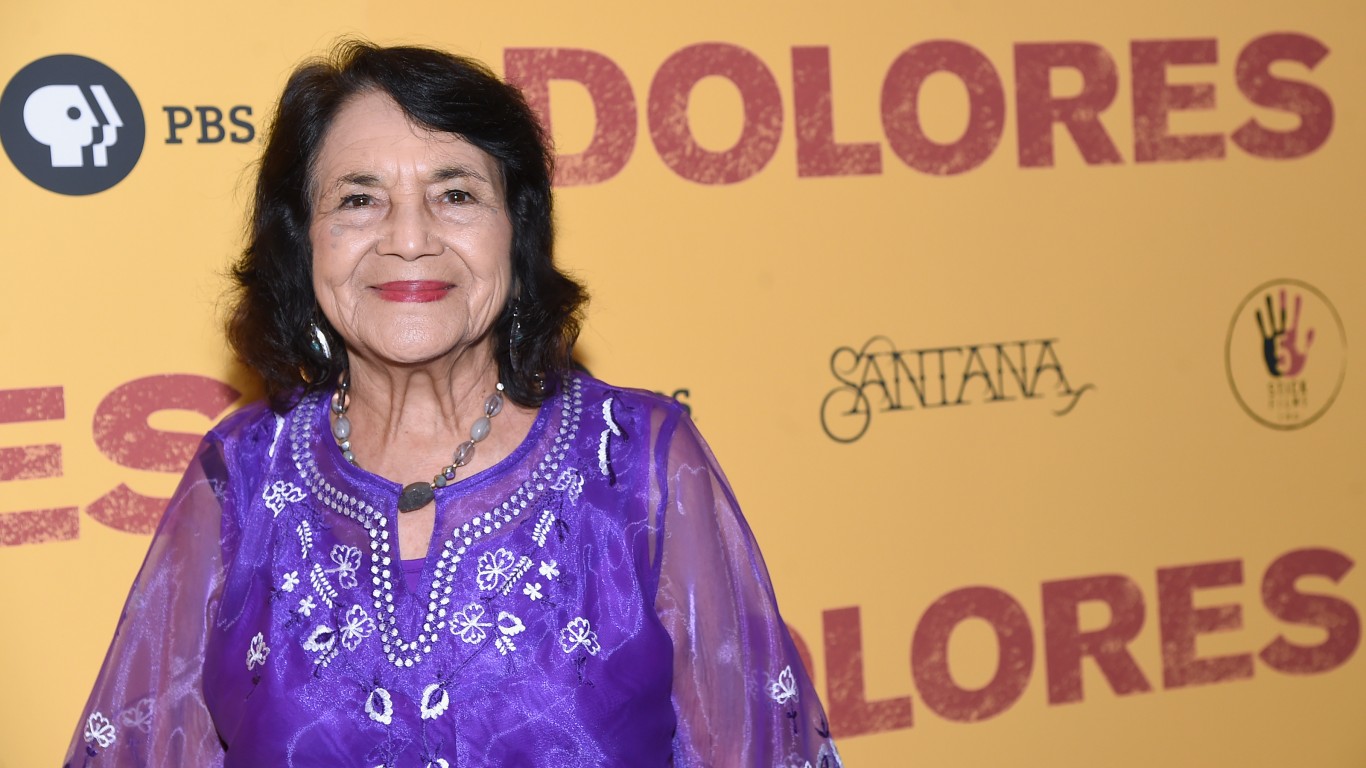
9. Dolores Huerta
> Cause involved with: labor rights
Inspired by the racism she saw as an American of Mexican descent growing up around agricultural workers in California’s San Joaquin Valley, Huerta began advocating on behalf of farm workers in 1955. She later worked with labor rights leader and civil right activist Cesar Chavez to form the United Farm Workers Association. In July, California Governor Jerry Brown designated April 10 as Dolores Huerta Day to honor her lifetime work as a civil rights activist.
[in-text-ad-2]
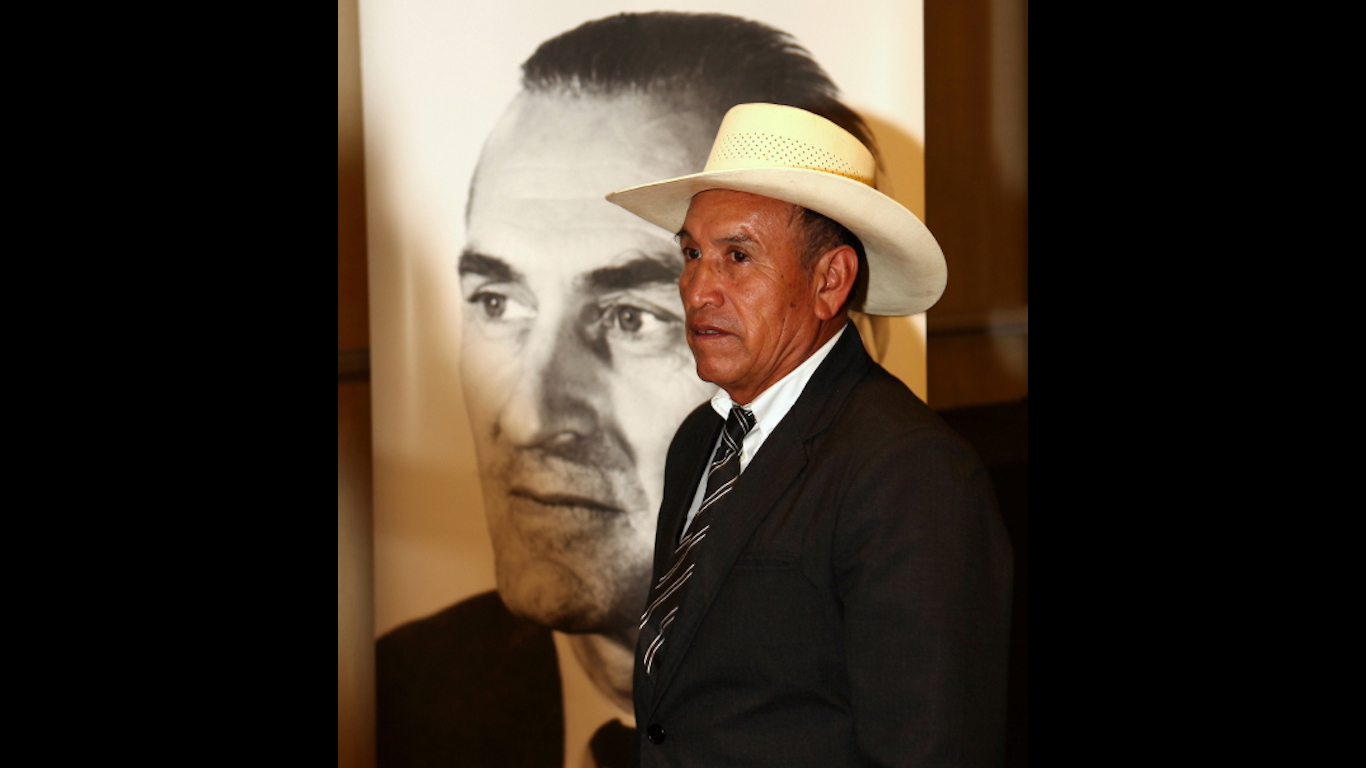
10. Benjamín Manuel Jerónimo
> Cause involved with: reconciliation
A survivor of the Plan de Sánchez massacre, in which members of Guatemala’s armed forces massacred 256 Mayans, many of them women and children, Jerónimo has spent the past three decades seeking justice and reconciliation in the wake of the country’s long armed conflict that ended in 1996. His work in holding those responsible for the killing of an estimated 200,000 civilians and the displacement of about 50,000 others during Guatemala’s internal conflict is ongoing.
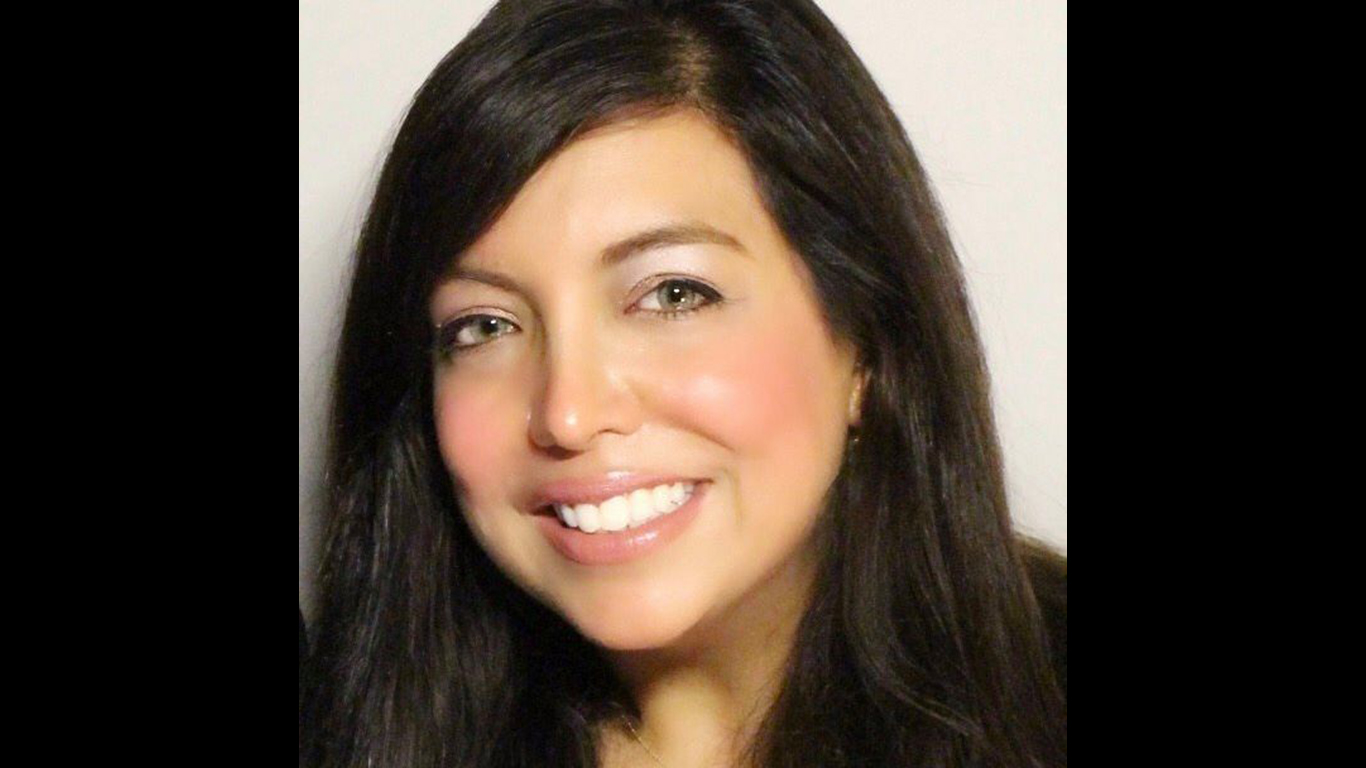
11. Zainab Zeb Khan
> Cause involved with: human rights
In 2016, the president of the Muslim American Leadership Alliance was awarded the UNICEF Next Generation Humanitarian Award for her work counseling domestic violence survivors and promoting better relations between Muslims and non-Muslims in the United States. A clinical psychologist by training Khan has promoted artists facing oppression and has organized a U.S. scholarship program for youths from war-torn countries.
[in-text-ad]
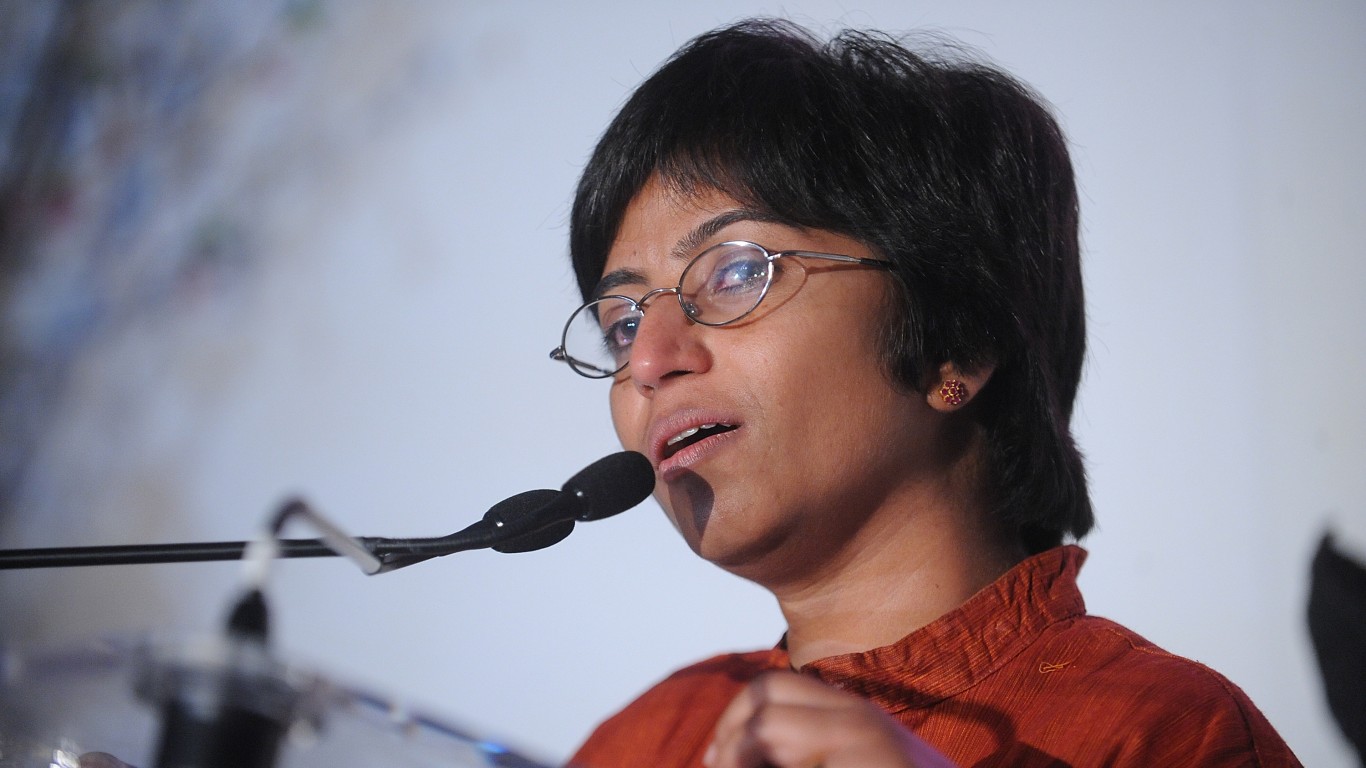
12. Sunitha Krishnan
> Cause involved with: women’s rights
Krishnan emerged from the horrendous experience of being gang-raped by eight men at the age of 15 to become a social activist and co-founder of Prajwala, an organization devoted to combating sex trafficking and sex crimes in India. Krishnan has dedicated her life to helping the survivors of rape and forced prostitution, as well as the children born from these crimes who, like their mothers, face harsh stigmatization in India.
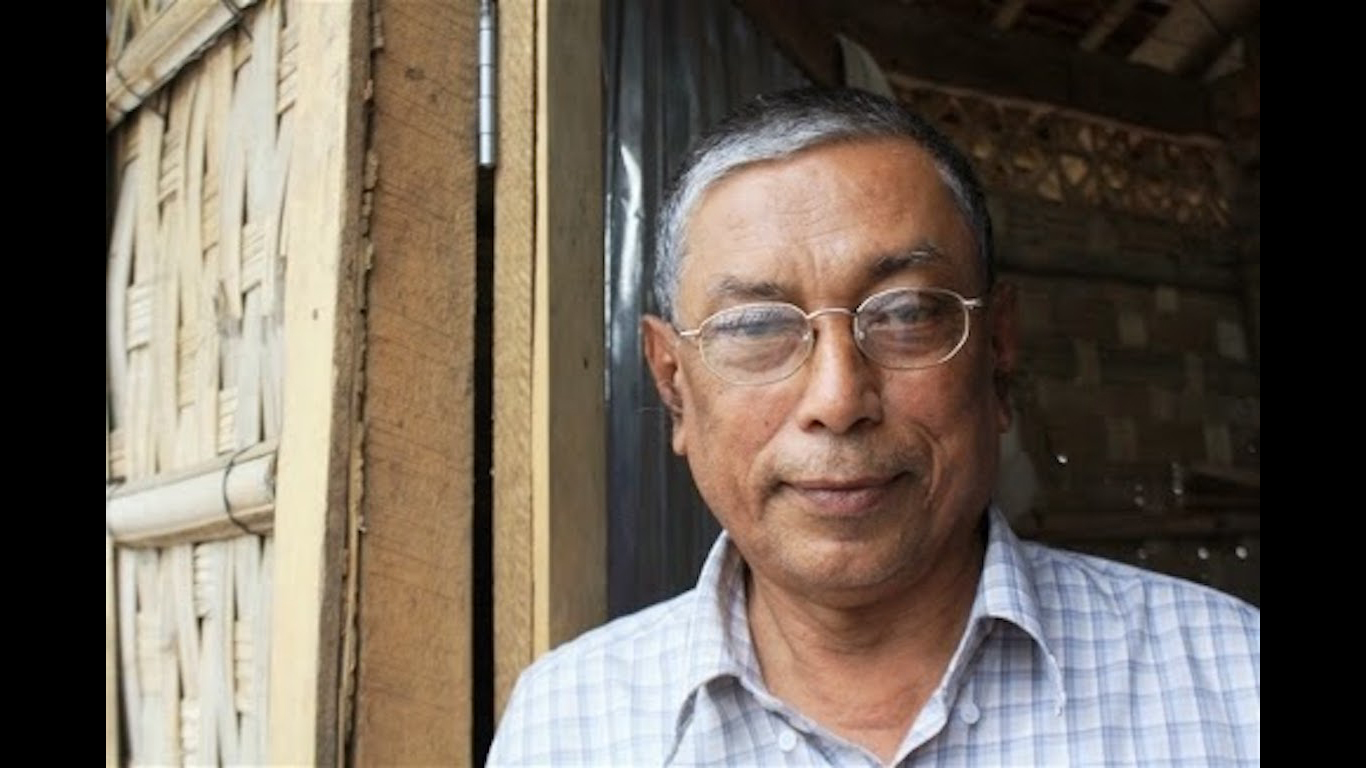
13. Kyaw Hla Aung
> Cause involved with: human rights
This human rights lawyer has been a tireless advocate for Myanmar’s oppressed Rohingya people for decades, long before the 2015 refugee crisis that has tainted the once lofty reputation of Myanmar leader Aung San Suu Kyi. The leader, and 1991 Nobel Peace Prize laureate, is facing global condemnation for refusing to recognize the citizenship rights of the Rohingya, a Muslim minority in the predominantly Buddhist country. Kyaw Hla Aung has emerged as one of the most vocal global advocates for Rohingya rights.
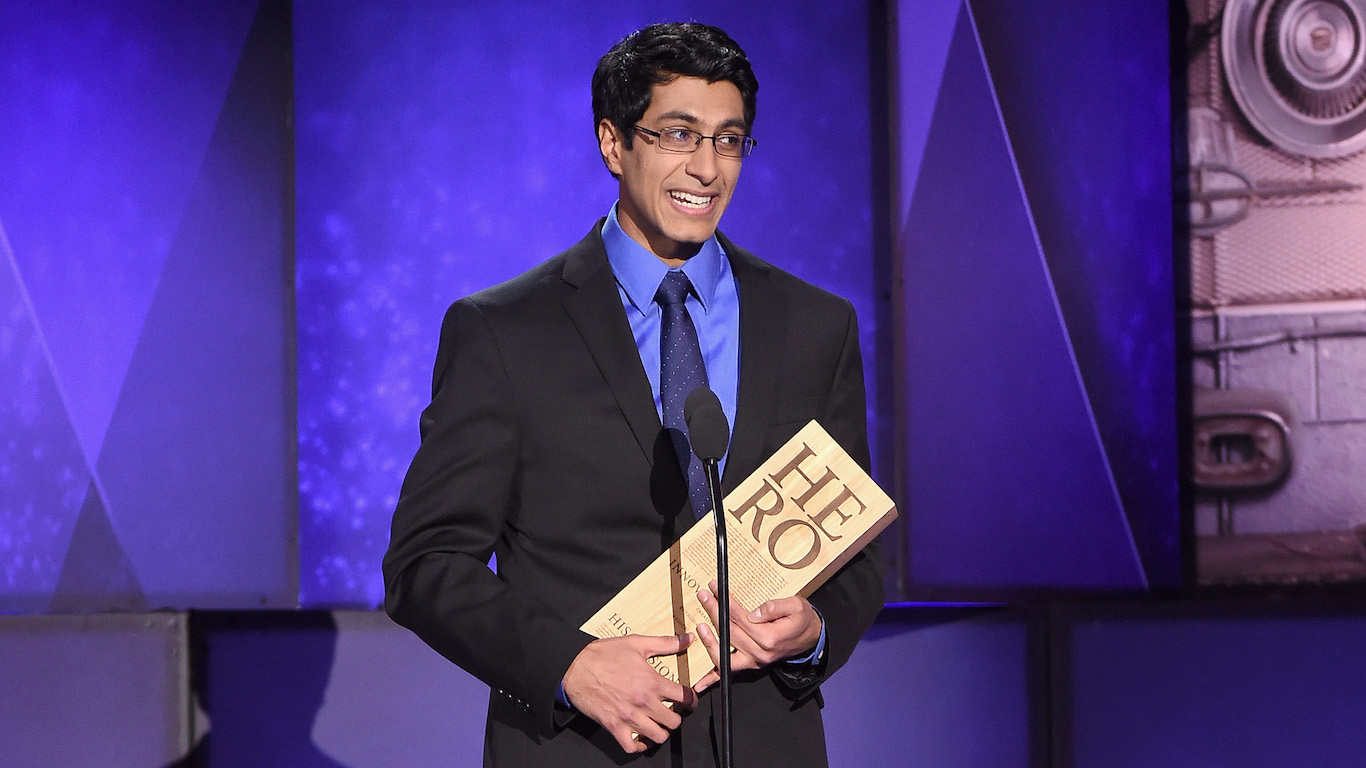
14. Samir Lakhani
> Cause involved with: hygiene
During a summer working for a nonprofit organization in Cambodia in 2014, American college student Samir Lakhani was horrified to see a woman washing her child with laundry detergent. Even that was a minor luxury for the country’s many rural poor who often simply rub soil or ash on their skin. This led Lakhani to found Eco-Soap, a nonprofit organization that collects and recycles barely used bars from local hotels. Eco-Soap employs about 30 locals, who recycle the soap and donate them to schools, hospitals, clinics, and orphanages. Since 2014, Eco-Soap has collected used soap from over 220 hotels and provided recycled bars to over 660,000 Cambodians.
[in-text-ad-2]
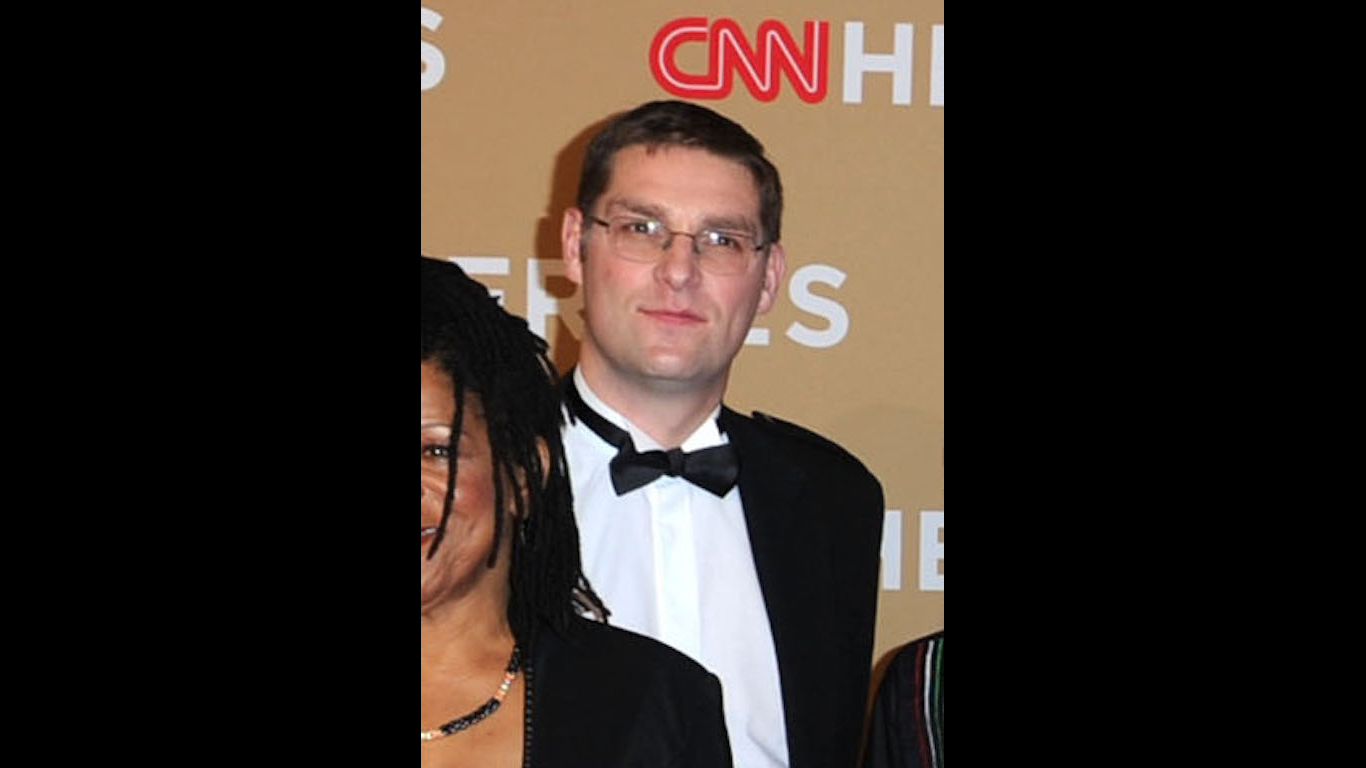
15. Magnus MacFarlane-Barrow
> Cause involved with: hunger eradication
Inspired by newsreels of Bosnian war refugees, Magnus MacFarlane-Barrow and his brother Fergus loaded up a Land Rover with donated food, clothing, medicine, and blankets and drove to the war-torn country to personally deliver the goods. This would be the first of 23 humanitarian trips to and from Bosnia. After much thought and prayer, Magnus, a devout Catholic, sold his home, quit his job and in 2002 founded Mary’s Meals. The organization now feeds nearly a million children in a dozen countries.
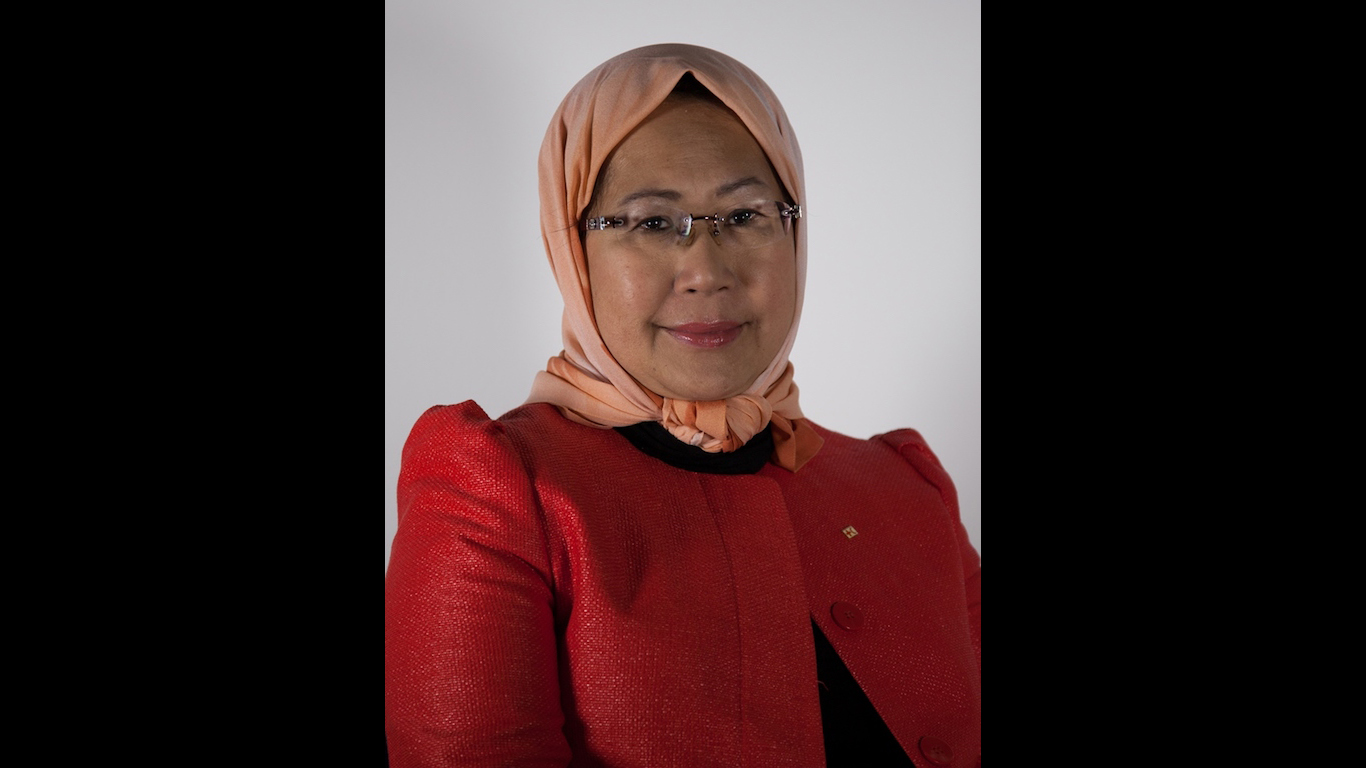
16. Dr. Jemilah Mahmood
> Cause involved with: medical treatment
An obstetrician and gynecologist by training, Dr. Mahmood founded MERCY Malaysia, a medical relief organization that serves vulnerable communities in crisis and non-crisis situations. MERCY Malaysia has treated civilian victims of wars in Kosovo and Iraq, as well as people injured by natural disasters, including the 2004 earthquake and tsunami that ravaged western Indonesia. The doctor has since gone on to lead the United Nations World Humanitarian Summit and is currently a top official at the International Federation of Red Cross and Red Crescent Societies.
[in-text-ad]
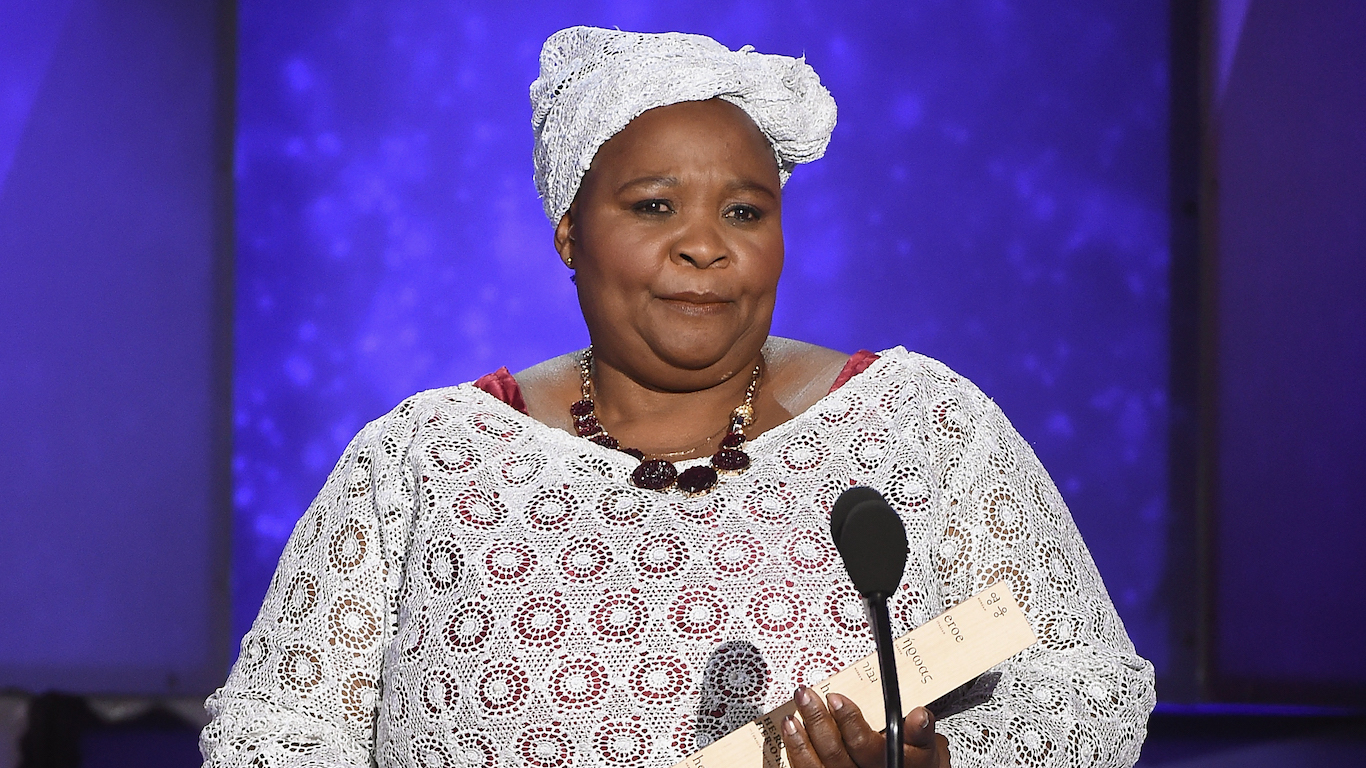
17. Rosie Mashale
> Cause involved with: sanctuary
In 1989, Mashale noticed children in South Africa’s Western Cape township of Khayelitsha scavenging in a nearby dump for food. She invited the children in for some bread, and from there established a local daycare center. Years later, “Mama Rosie,” as she has come to be known, discovered a naked, abandoned baby on her doorstep. This led to the founding of Baphumelele, an orphanage that has cared for thousands of abandoned children, many of whom have lost parents to the country’s AIDS epidemic.
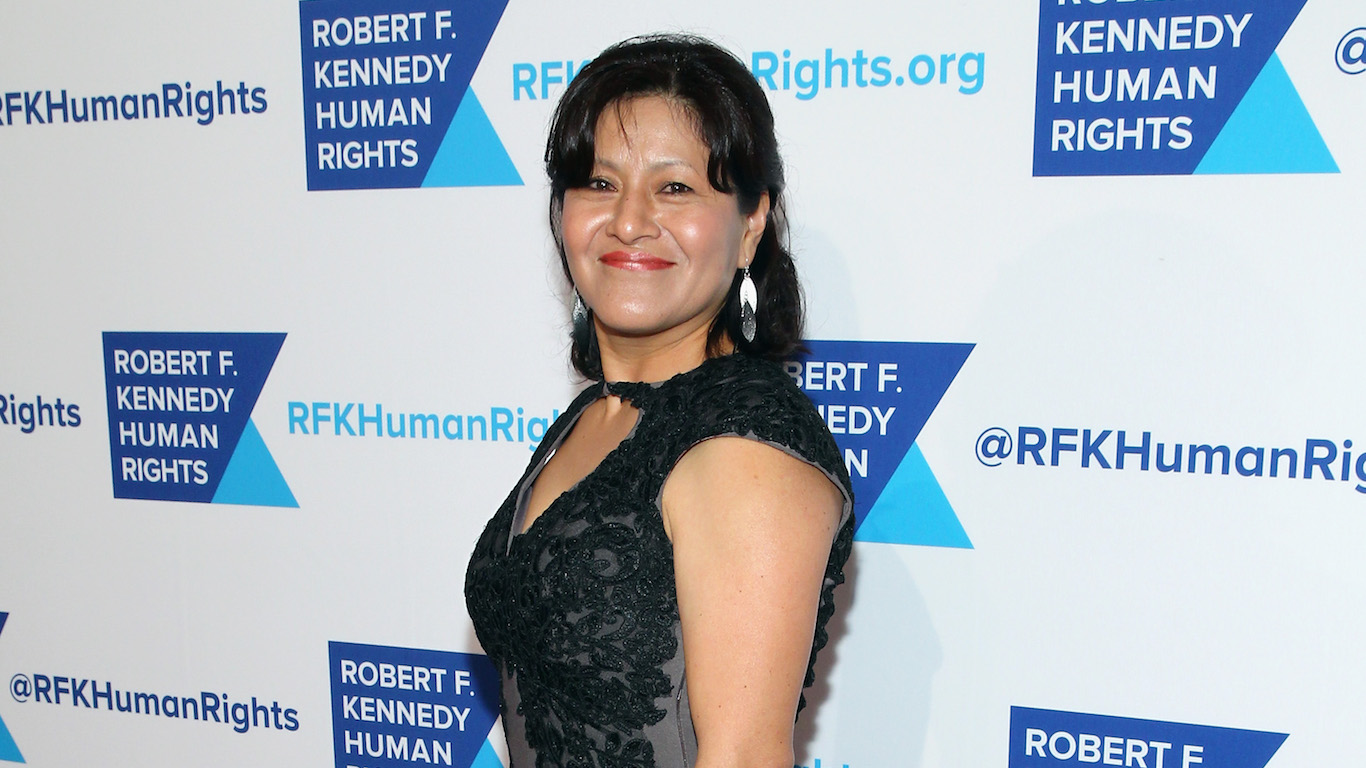
18. Librada Paz
> Cause involved with: labor rights
Immigrant farm workers in the U.S. often face undue hardships, including wage theft and firing for falling sick. Language barriers and cultural disorientation can prevent these workers from knowing their rights or seeking legal assistance. Librada Paz understands the issues faced by these workers, who are often from her home country of Mexico. With her past experience as an undocumented immigrant fruit picker — who later went on to get a mechanical engineering degree –and through her work with the Rural and Migrant Ministry, this 2012 Robert F. Kennedy Human Rights Award winner has rallied farm workers in New York State. She continues to push for laws that would afford them basic labor rights, including overtime pay and one day of rest per week.
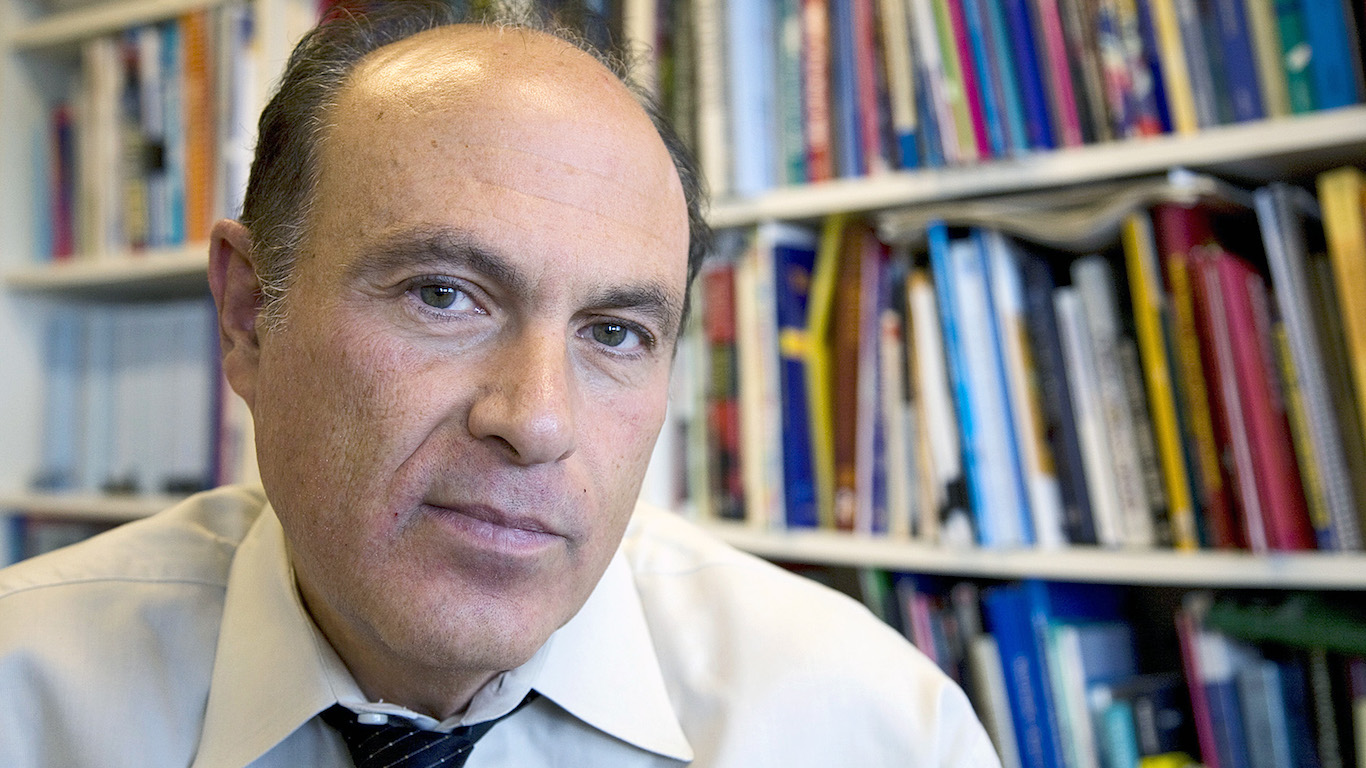
19. Dr. Gary Slutkin
> Cause involved with: public health
A professor of epidemiology at the University of Illinois, this senior advisor to the World Health Organization hit upon a novel idea: to treat violence using the same methods and strategies deployed to control the spread of infectious diseases. And so he founded Cure Violence. His methods, which include detecting and interrupting local outbreaks of violence and identifying and preemptively treating individuals at high risk of committing violence, have resulted in significant decreases in violence in “infected” communities.
[in-text-ad-2]
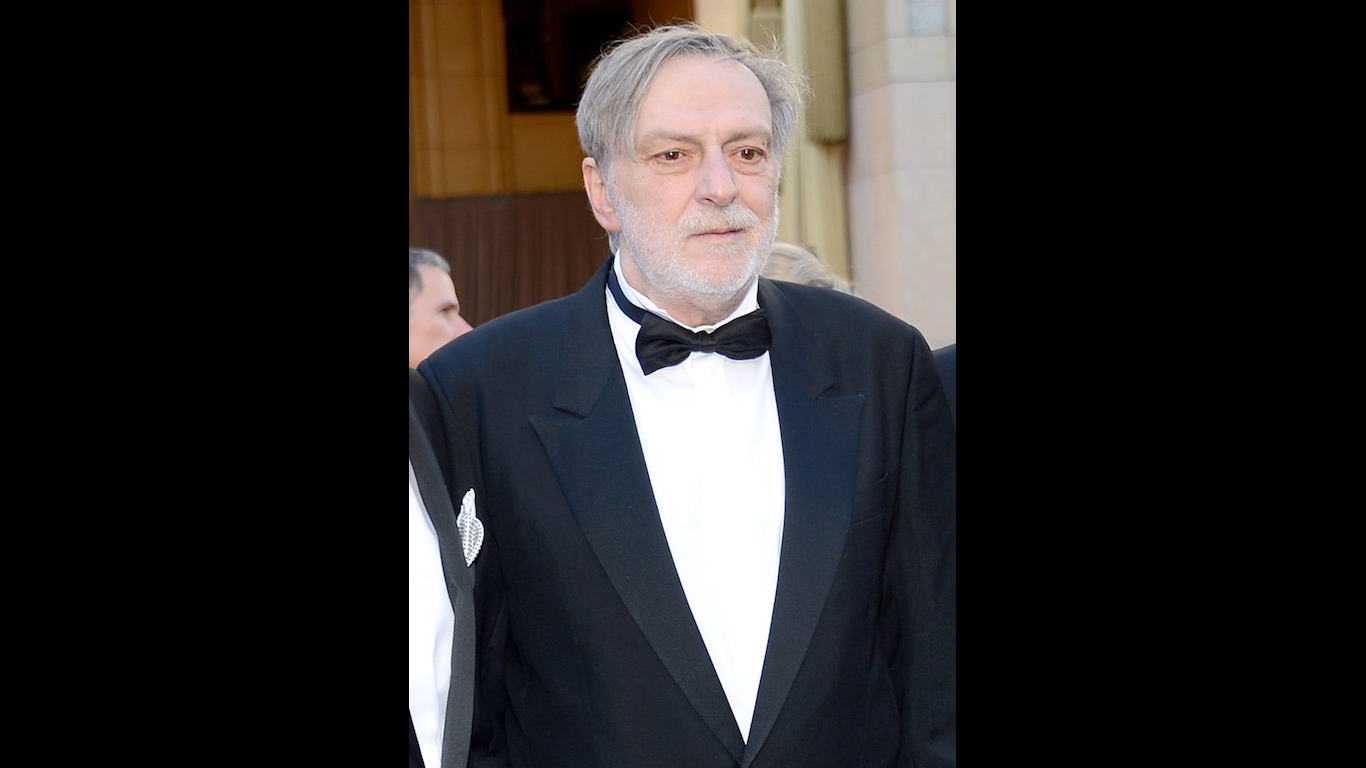
20. Dr. Gino Strada
> Cause involved with: medical treatment
A heart-lung transplant surgeon by training, Gino Strada could have taken the easy route to a comfortable life as a doctor in Italy or the U.S. Instead, he’s spent much of his career saving and repairing lives in war-torn countries, including Iraq, Sudan, and Afghanistan. The founder of Emergency NGO has spent his time well into retirement age shuttling among the dozens of health care centers his organization operates, often spending months at a time in the field.
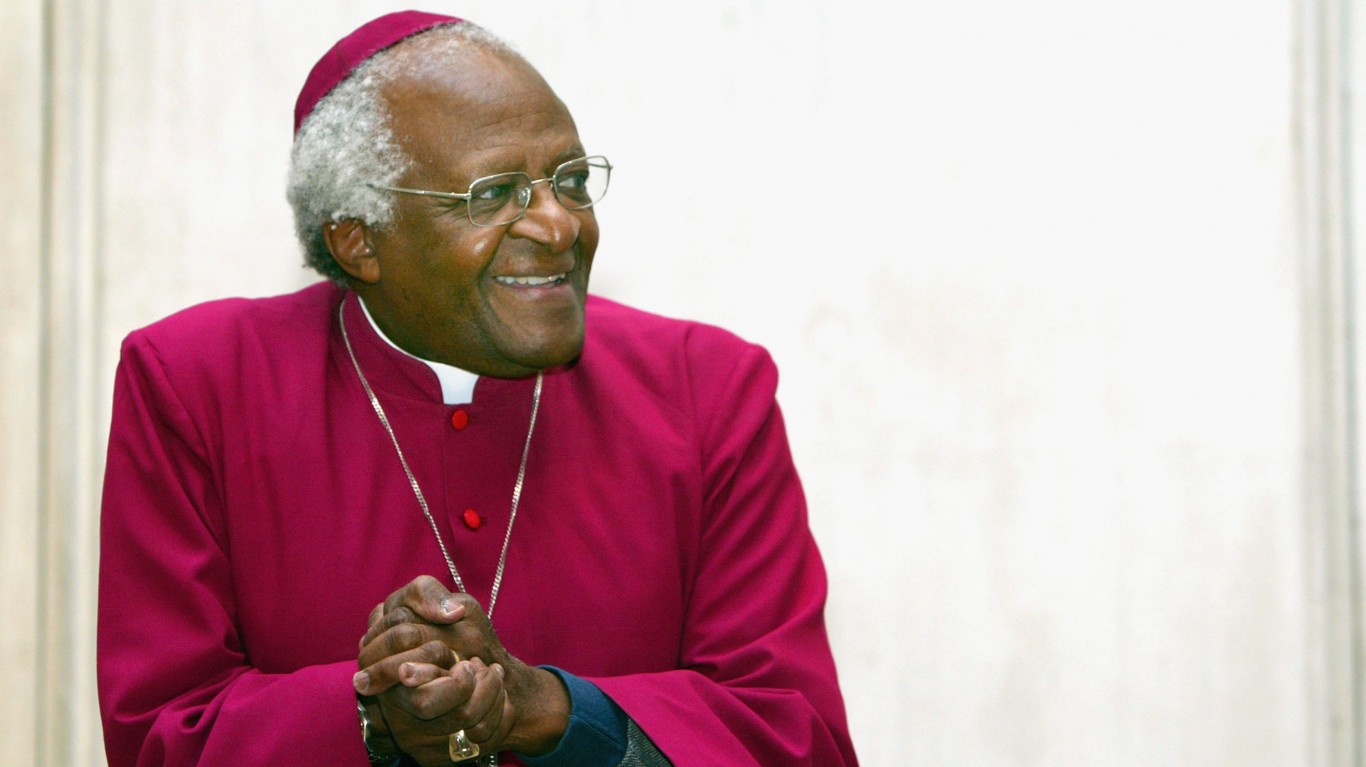
21. Desmond Tutu
> Cause involved with: human rights
The 86-year-old South African theologian, former archbishop, and Nobel Peace Prize winner is one of the better known humanitarians on this list for his work alongside Nelson Mandela on behalf of black South Africans under apartheid. Institutionalized racial segregation came to an end in 1994 with the adoption of a new constitution and the formation of a coalition government reflecting the demographics of the country.
[in-text-ad]
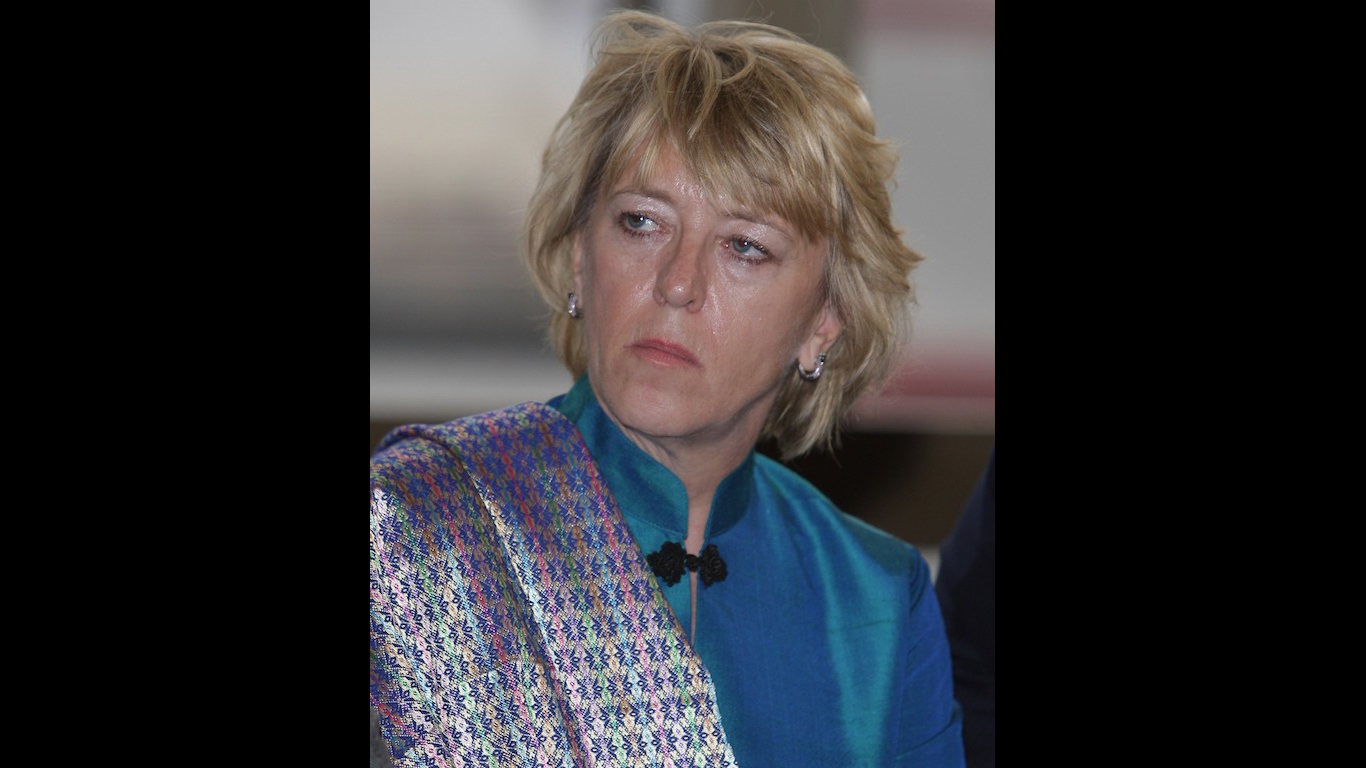
22. Jody Williams
> Cause involved with: human rights
After spending much of the 1980s involved in dangerous human rights work in Central America, Williams became a leading proponent for banning and clearing land mines, which cause death or severe injury to civilians years after military conflicts have ended . For her work as co-founder of the International Campaign to Ban Landmines, WIlliams won the Nobel Peace Prize in 1997.
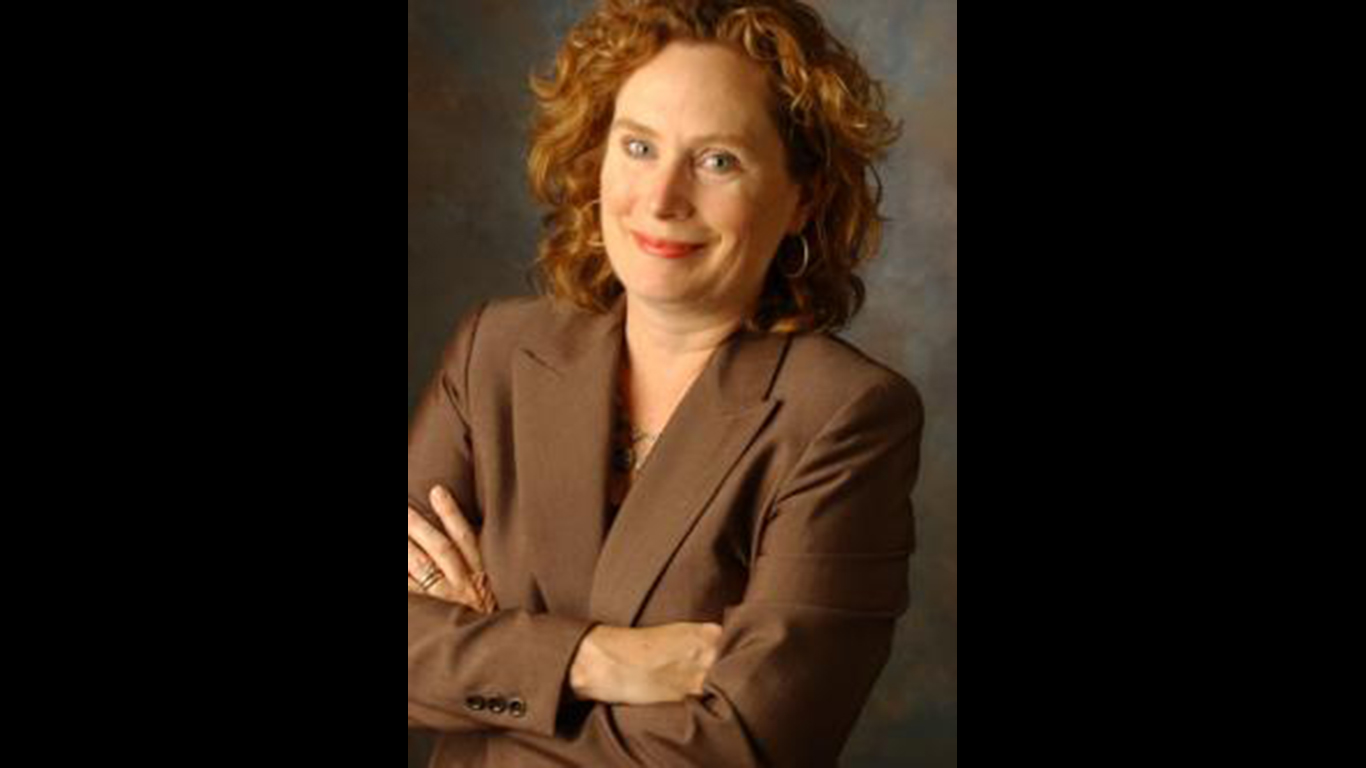
23. Maria Woltjen
> Cause involved with: children’s rights
The director of the University of Chicago’s Young Center for Immigrant Children’s Rights has spent 30 years trying to reform the U.S. immigration system, which treats children, especially unaccompanied minors who enter the U.S. illegally, as adults during deportation proceedings. The issue recently grabbed national attention when immigration authorities separated children from their families.
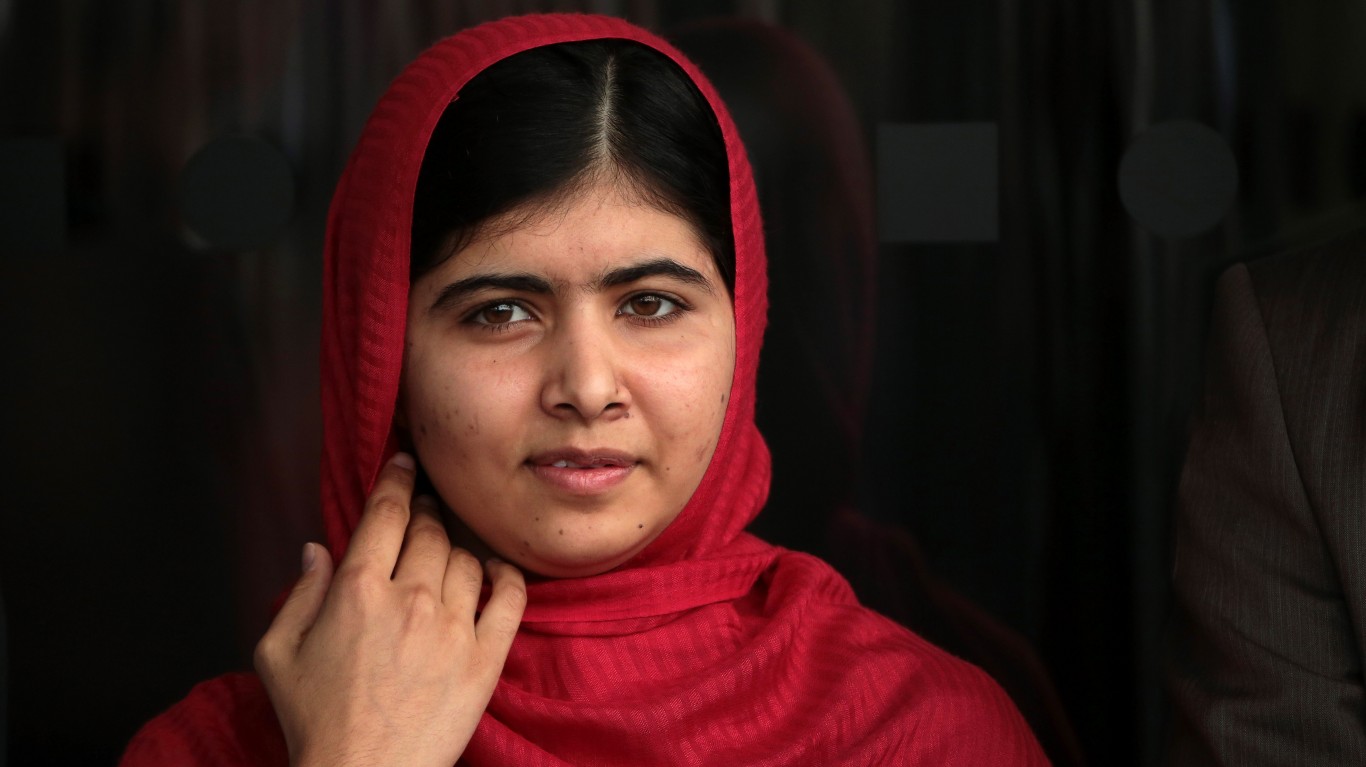
24. Malala Yousafzai
> Cause involved with: children’s education
Even before she survived a gunshot wound in 2012 by a Taliban militant, Yousafzai was a vocal opponent of efforts by radicals in the Swat Valley of Pakistan to shut down girls schools. The attack only strengthened her resolve. The 2014 Nobel Peace Prize recipient, the youngest on record, is currently studying at Oxford University while acting as a high-profile global advocate for children’s education, especially for girls. As of 2016, there were an estimated 130 million girls out of school worldwide.
[in-text-ad-2]
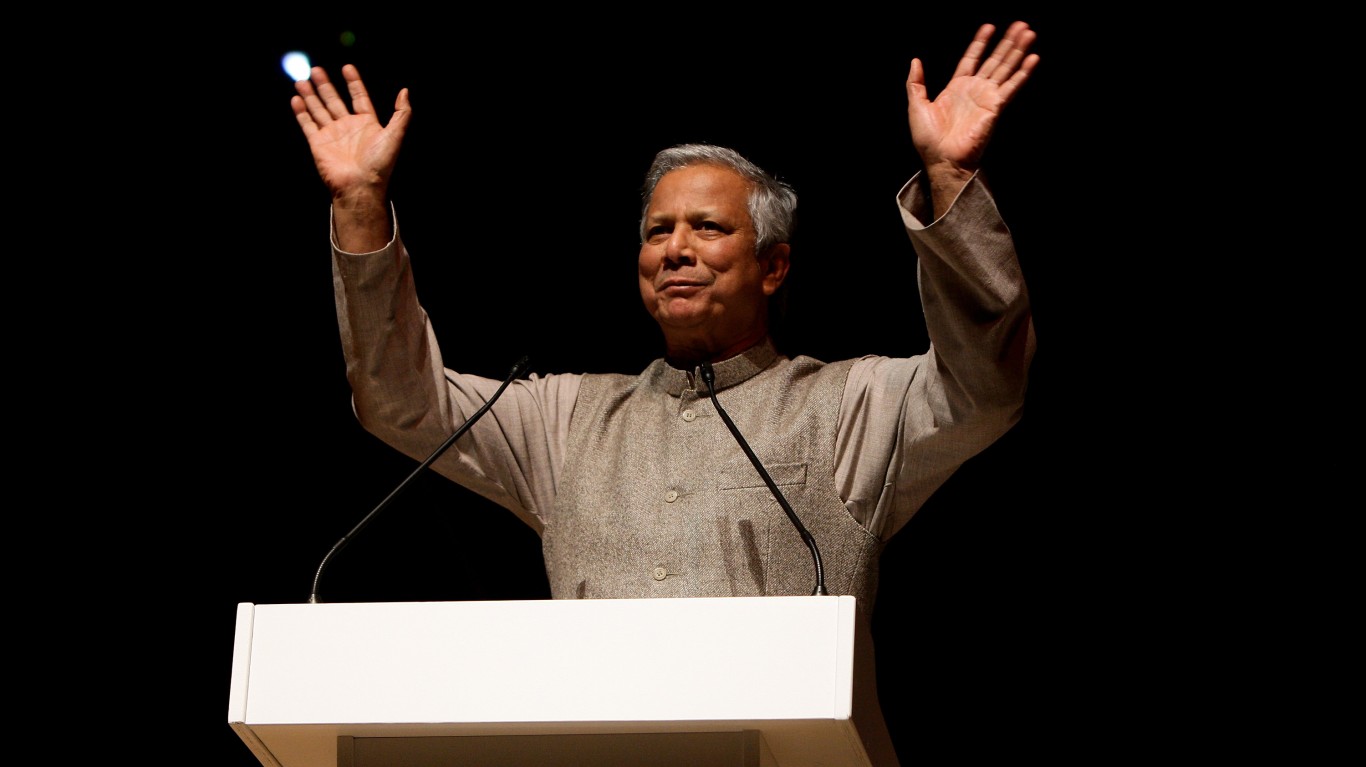
25. Muhammad Yunus
> Cause involved with: economic empowerment
In the mid-1970s, the “Banker to the Poor” was giving small loans to poor Bangladeshi basket weavers and studying the effect of establishing very small and flexible lines of credit for the rural poor. Using this research, the 2006 Nobel Peace Prize winner founded Grameen Bank in 1983. The underlying principle is that charity alone can’t economically empower people who are traditionally cut off from the kinds of banking services used by entrepreneurs to develop their skills. By 2011, the bank, which is mostly owned by its borrowers, claimed 8.4 million members, nearly all of them women. Reportedly, 98 percent of Grameen loans are paid back.
Thank you for reading! Have some feedback for us?
Contact the 24/7 Wall St. editorial team.
 24/7 Wall St.
24/7 Wall St. 24/7 Wall St.
24/7 Wall St. 24/7 Wall St.
24/7 Wall St. 24/7 Wall St.
24/7 Wall St.


